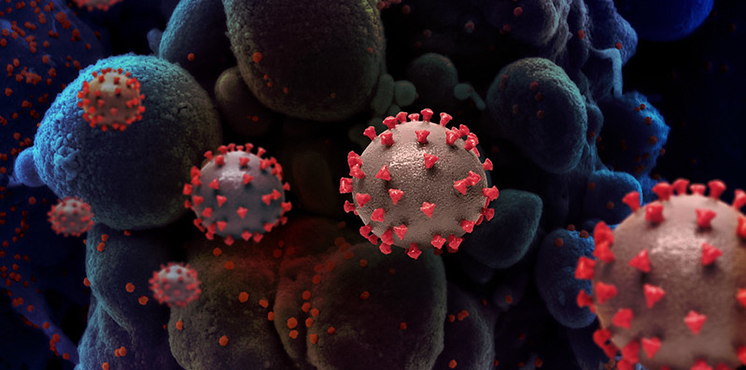National Clinical Cohort Collaborative (N3C)
N3C translates health data into health solutions.
N3C Overview
N3C is a national resource of real-world data that researchers are using to speed medical research.
With stewardship from NCATS, more than 90 institutions worked together to build N3C. N3C systematically collects electronic health record (EHR) data from different institutions and harmonizes them into a central enclave. The enclave offers spaces for collaborative research. In addition, EHR data within the enclave can connect to other data sets, which creates a more complete picture of patients’ health journeys.
NCATS is leveraging the original N3C infrastructure in new ways to expand into new disease domains and cover Real-World Data training needs for researchers.
We know that the data in the enclave represents people. As the steward of the data, we take seriously the responsibility of keeping those data safe. Our comprehensive approach addresses the security of the N3C Enclave and protects patient privacy.
To learn more:
To learn more about the N3C datasets, access requirements, stewardship and protection, data security, and data privacy, please navigate to the About N3C Enclave Data page.
Clinical Pilots

The N3C Pilot Tenants leverage operational and governance aspects of the N3C platform that are established already. The projects focus on using real-world clinical data to better understand chronic kidney disease and cancer.
Education Tenant

The N3C Education Tenant offers a space for researchers to develop and practice the skills needed to analyze real-world data. It includes data from 500,000 simulated patients that represent common elements found within electronic health records.
Long COVID Tenant

The N3C Long COVID Tenant is the largest open U.S. database for ongoing Long COVID and COVID-19 research and the initial Proof of Concept for N3C. Researchers and clinicians have used this national resource to reveal risk factors for Long COVID, help health care providers choose effective treatments, and so much more.
Dynamic Tenant

N3C Dynamic Tenants provide researchers with project-specific, secure data environments tailored precisely to individual research needs. Each research project becomes its own tenant, dynamically assembled based on submitted phenotypes and approved data requests. This approach streamlines study initiation, enhances data precision, and maximizes collaboration and reuse of standardized phenotypes across projects.
N3C in Action
From its inception, N3C supports advancement in public health, providing answers to critical questions.
 |  |  |  |  |
RESULTED IN SIGNIFICANT SCHOLARLY PRODUCTIVITY
| ATTRIBUTED AT SCALE AND INCENTIVIZED COLLABORATION
| TRANSFORMED CARE GUIDELINES
| EVIDENCE-BASED DISEASE DEFINITIONS
| DEVELOPED COMPLEX RISK PREDICTION MODELS
|
N3C Impact

N3C Data Identify Drugs That May Boost Risk of Post–COVID-19 Pulmonary Fibrosis
November 20, 2023
A new study used NCATS’ N3C database to see how more than 450,000 people without pulmonary fibrosis (PF) fared after they were hospitalized with COVID-19. Researchers looked at how common drugs linked to PF affected the risk of developing post–COVID-19 PF. Rituximab and chemotherapy drugs were tied to greater PF post-infection risk. In patients exposed to rituximab, PF incidence was 2.8 cases per 100 person-years, compared with 1.1 cases per 100 person-years in a control group. PF incidence among those exposed to chemotherapy was 2.2 cases per 100 person-years, compared with 1.3 cases among a control group. The heart drug amiodarone did not appear to boost risk.
N3C Data Reveal COVID-19 Hospitalization Increases Risk of Heart Failure
October 25, 2022
Using data from more than half a million electronic health records in the N3C COVID Enclave, researchers found that a greater percentage of people who had been hospitalized with COVID-19 developed heart failure than people who had been hospitalized without COVID-19.
Scientists Identify Characteristics to Better Define Long COVID
June 10, 2022
To get a better understanding of Long COVID and the individuals who are likely to have it, NIH-supported researchers used machine learning techniques to analyze an unprecedented collection of de-identified electronic health records in NCATS’ N3C COVID Enclave.
N3C Study Ties Aspirin Use in Moderate COVID-19 to Lower Risk of Blood Clots and Death
March 24, 2022
Giving aspirin to people hospitalized with moderate COVID-19 may reduce their risks of blood clots in the lung and of death, according to a large study of patient information from the N3C COVID Enclave.
Related Research

Clinical and Translational Science Awards (CTSA) Program
The CTSA Program addresses the development and implementation of national standards and best practices for translation, from basic discovery to clinical and community-engaged research.

Biomedical Data Translator
This program funds projects that integrate existing medical and biological data from different sources to quickly and easily reveal valuable connections and insights about diseases, including potential treatments.

Informatics
This NCATS team works with scientists to make sense of data from large experiments to inform decisions that advance translational research.


